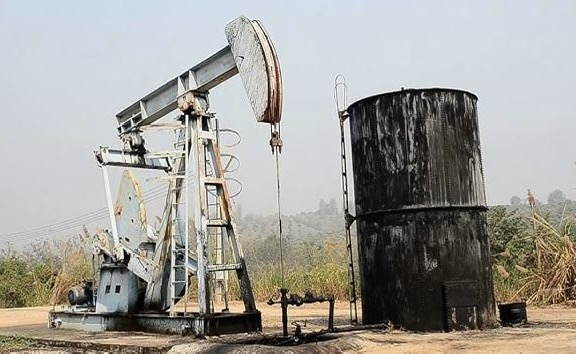KEY POINTS
- Predator Oil & Gas shares fell over 30% after its MOU-3 well in Morocco failed to deliver expected performance, prompting technical reassessment.
- The company plans to drill a new well, MOU-6, with a redesigned approach aimed at avoiding formation damage and improving reservoir evaluation.
- CEO Paul Griffiths said the next well is critical to understanding potential productivity, and efforts are underway to begin drilling as soon as possible this year.
Shares in Predator Oil & Gas Holdings Plc (LSE:PRD) took a sharp nosedive on Friday, plunging more than 30% in early London trading, after the company disclosed disappointing news from its MOU-3 well in Morocco—a key part of its strategy to unlock untapped gas resources in the Guercif basin.
The energy junior had pinned high hopes on the MOU-3 well, which was perforated using larger perforation guns for the first time, a move intended to optimize flow rates and better access the reservoir.
Following nitrogen-assisted recovery, initial feedback suggested the team had successfully broken into the target zone. But signs of a breakthrough quickly gave way to a more sobering reality.
Technical Challenges Stall Progress
The well has since been shut in to monitor pressure build-up, a step often taken to allow potential damage within the formation to heal, while engineers assess whether flow conditions can improve over time. Formation damage—essentially clogging or alteration of the reservoir rock around the wellbore—can limit or completely block hydrocarbon flow.
Predator conceded that despite perforation success, the results were not encouraging enough to justify continuing operations without reassessing the technical approach.
As a result, the company is shifting its attention to a new well, MOU-6, which will feature a revised well design aimed specifically at minimizing formation damage and improving data capture across multiple layers of the reservoir.
“We will seek to execute the MOU-6 drilling programme at the earliest opportunity this year in order to maintain momentum,” said Chief Executive Officer Paul Griffiths in a statement. He noted that MOU-6 is expected to provide critical insights into reservoir performance and will play a pivotal role in shaping future development strategy.
The failure to deliver a commercially viable result from MOU-3 is a setback not just technically, but also reputationally for the AIM-listed explorer, which has been touting Morocco as a promising and relatively underexplored gas frontier.
As the dust settled Friday morning, Predator’s stock was changing hands at 3.66 pence—down roughly 33%—reflecting shaken investor confidence and renewed scrutiny of the company’s drilling execution and risk management.
Still, executives at Predator maintain that the broader play remains intact, and argue that setbacks like this are not unusual in frontier oil and gas exploration. With MOU-6 on the horizon, investors and analysts alike will be watching closely to see whether the company can reverse its fortunes and reassert its position in North Africa’s upstream narrative.



